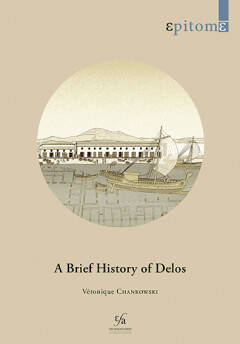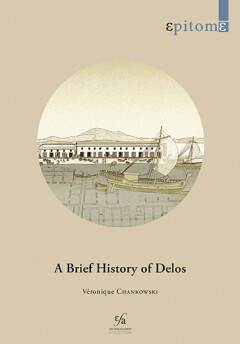
- Retrait en 2 heures
- Assortiment impressionnant
- Paiement sécurisé
- Toujours un magasin près de chez vous
- Retrait gratuit dans votre magasin Club
- 7.000.0000 titres dans notre catalogue
- Payer en toute sécurité
- Toujours un magasin près de chez vous
Description
The remains on Delos became known to fifteenth-century seafarers and travellers and were then explored primarily by the French School at Athens from 1873 onwards. They have yielded substantial records that serve as a benchmark in Mediterranean archaeology. In conjunction with many ancient texts, they provide an outstanding account of the changing features of a civilization - its religion and institutions, its economy and everyday life - from the onset of archaic times through to late antiquity. Lying in the heart of the Cyclades, Delos shares with other islands in the archipelago a semi-arid climate and low relief where powerful northerly and southerly winds contend or alternate. Measuring just 3.5 km2 in area, it might seem quite insignificant had it not become, from antiquity and for several centuries, one of the Greek world's leading centres of political, religious and financial power. For visitors sailing from Mykonos along the craggy northern shore of Delos, the contrast with the haunting remains of the ancient port and sanctuaries that come into view shortly after is striking. It is that same contrast between the island's seemingly barren ground and its fabulous wealth that the myths and legends about Delos sought to explain. The great sanctuary of Apollo that arose on the island was the hub of things. All areas of Delian life depended on it, whatever the changes down the centuries. From the earliest known developments on the island in the seventh century BC up until it was gradually deserted in the sixth century AD, through the remains we can contemplate the unique history of an island community amid the swirls and eddies of the major changes in the eastern Mediterranean.
Spécifications
Parties prenantes
- Auteur(s) :
- Traducteur(s):
- Editeur:
Contenu
- Nombre de pages :
- 63
- Langue:
- Anglais
- Collection :
- Tome:
- n° 6
Caractéristiques
- EAN:
- 9782869586055
- Date de parution :
- 31-12-23
- Format:
- Livre broché
- Format numérique:
- Trade paperback (VS)
- Dimensions :
- 140 mm x 200 mm
- Poids :
- 77 g

Seulement chez Librairie Club
+ 19 points sur votre carte client de Librairie Club
Les avis
Nous publions uniquement les avis qui respectent les conditions requises. Consultez nos conditions pour les avis.





